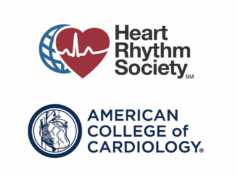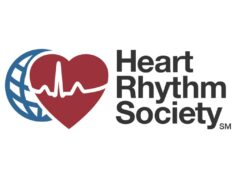 The Heart Rhythm Society (HRS) COVID-19 Rapid Response Task Force has updated its guidance on QTc monitoring in COVID-19 patients. In the revised guidance, the society provides recommendations for inpatient management of COVID patients recevieing hydroxychloroquine and advises against the use of hydroxychloroquine (HCQ) and chloroquine as an outpatient treatment for the coronavirus.
The Heart Rhythm Society (HRS) COVID-19 Rapid Response Task Force has updated its guidance on QTc monitoring in COVID-19 patients. In the revised guidance, the society provides recommendations for inpatient management of COVID patients recevieing hydroxychloroquine and advises against the use of hydroxychloroquine (HCQ) and chloroquine as an outpatient treatment for the coronavirus.
HCQ, an oral prescription drug that has been used for the treatment of malaria and certain inflammatory conditions, is currently under investigation in clinical trials for pre- or post-exposure prophylaxis of SARS-CoV-2 infection, and treatment of patients with mild, moderate, and severe COVID-19. HRS, alongside other leading cardiac organisations, including the American Heart Association (AHA) and the American College of Cardiology (ACC), had already issued guidance (on 7 April), cautioning against the use of HCQ and chloroquine as a treatment for COVID-19 as both are known to cause torsade de pointes and arrhythmia
HRS updated its guidance on QTc monitoring in COVID-19 patients this week (21 April), acknowledging that whilst there has been great interest in the use of hydroxychloroquine and chloroquine, with or without azithromycin, for inpatient treatment of COVID-19, “available data have been conflicting and there have been no published randomised controlled trials that assess efficacy and safety.” Therefore, HRS maintained its stance that caution must be exercised when using these drugs, yet to be proven, as an inpatient treatment for COVID-19 due to the possibility of QTc prolongation and torsade de pointes in some patients. Of note, azithromycin is an antibiotic that is widely used to treat chest infections.
The HRS guidance outlines several steps for the inpatient management of hydroxychloroquine, which include: optimising a patient’s baseline QTc and minimising QTc-prolonging medications whenever possible; obtaining 12-lead electrocardiogram (ECG) to establish baseline QTc and providing telemetry for patients felt to be at risk for significant QT prolongation; andto monitor the QTc, minimising use of 12-lead ECGs to reduce contact with COVID-19 and conserve PPE if patients are not considered high risk.
On outpatient management of hydroxychloroquine, HRS’s updated guidance notes that due to the “lack of credible evidence regarding efficacy” use of chloroquine/hydroxychloroquine by itself or in combination with azithromycin, is not recommended.
“However, for those who plan outpatient treatment of SARS-CoV2 infection or prophylactic treatment with chloroquine/HCQ alone or chloroquine/HCQ+AZM, we advise obtaining a 12-lead ECG, to establish baseline QTc, prior to taking the drug,” it states. “Given the lack of evidence supporting treatment, these agents should not be used in outpatients without a baseline ECG or a baseline QTc≥500msec (or ≥550 msec if QRS duration>120msec).”
HRS said that the COVID-19 Task Force will be further examining published data regarding the risk of torsade de pointes in the COVID-19 positive population as it becomes available.









